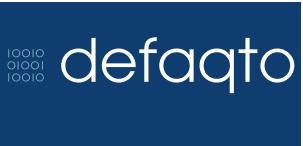DFM expert Matt Ward has told the first Defaqto DFM conference in London today that discretionary fund managers have seen rapid growth in popularity but warned that advisers must consider "suitability" before recommending a DFM to clients.
Mr Ward, Defaqto's wealth consultant, giving the first keynote address at the conference for 380 delegates at the Business Design Centre in London, said DFMs were more complex than many advisers realised with different styles and solutions available for different investment needs. He said while they have great value, choice and usefulness advisers should remember that they were not the only investment solution.
Because of the complexity, he said, advisers could not simply outsource management of client funds to a DFM and forget about it.
{desktop}{/desktop}{mobile}{/mobile}
He said: "Advisers cannot afford to say that they've done their outsourcing and that's the end of it."
He said there were now hundreds of DFM solutions available from 66 different groups and choosing the right one or ones for a client was a task in itself.
Turning to current trends in the DFM sector he said that they included an asset "land grab", minimum access terms reducing, huge growth in the number of service propositions, M&A activity surfacing and centralised selection by adviser businesses plus platform linking and scrutiny of Sipp panel suitability.
In terms of future trends he predicted continued growth in AUM, M&A activity to increase, revenue retrieval, pressure on charges, regulatory impact, challenge from other outsourced options such as multi manager funds - which may fight back - and platform dynamics.
Opportunities for advisers included comparing charges, matching managed portfolio service profiles with risk profiles, understanding managed portfolio service governnance, buying into an approach which matches your beliefs, comparing performance, delivering drawdown services and identifying strong partnerships.
The second keynote speech of the morning was presented by Hugo Thorman, chief executive of platform provider Ascentric, who discussed the value of model portfolios.
He also said that suitability was a key issue for advises particularly in light of the RDR and adviser charging. He believes the regulators will be looking at this issue when they review RDR progress in the third quarter.
He added that the different DFM models all had their own particular styles and these had different regulatory impacts.

